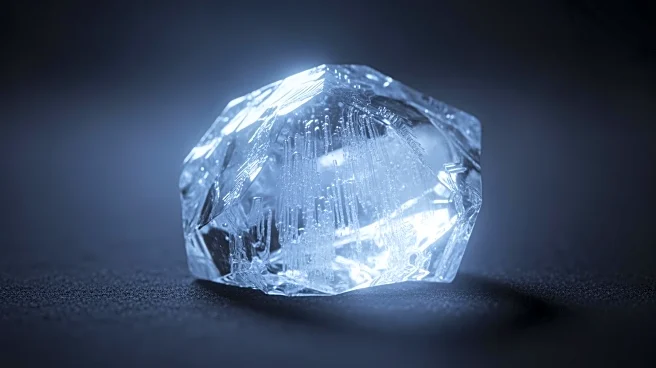What's Happening?
A recent study led by researchers from NASA Goddard Space Flight Center and Penn State proposes that future Mars missions should focus on searching for microbial life or its remains within the planet's
ice. The study simulated Martian permafrost and ice cap conditions, exposing *Escherichia coli* samples to cosmic radiation equivalent to 50 million years on Mars. The findings revealed that over 10 percent of amino acids from *E. coli* remained intact in pure water ice, suggesting that ice may preserve organic compounds better than Mars-like sediment.
Why It's Important?
This research highlights the potential of Mars' ice as a repository for ancient biological material, offering a promising avenue for astrobiological studies. The preservation of amino acids in ice could provide crucial insights into the history of life on Mars, potentially confirming the existence of past microbial life. This discovery could reshape our understanding of life's resilience and adaptability in extreme environments, influencing future mission designs and exploration strategies.
What's Next?
Future Mars missions may prioritize drilling into ice deposits to search for preserved organic material. This approach could lead to the development of new technologies and methodologies for ice excavation and analysis. The findings may also prompt international collaboration in Mars exploration, as space agencies seek to uncover the planet's biological history. Continued research and experimentation will be essential to refine techniques and ensure the success of these missions.









